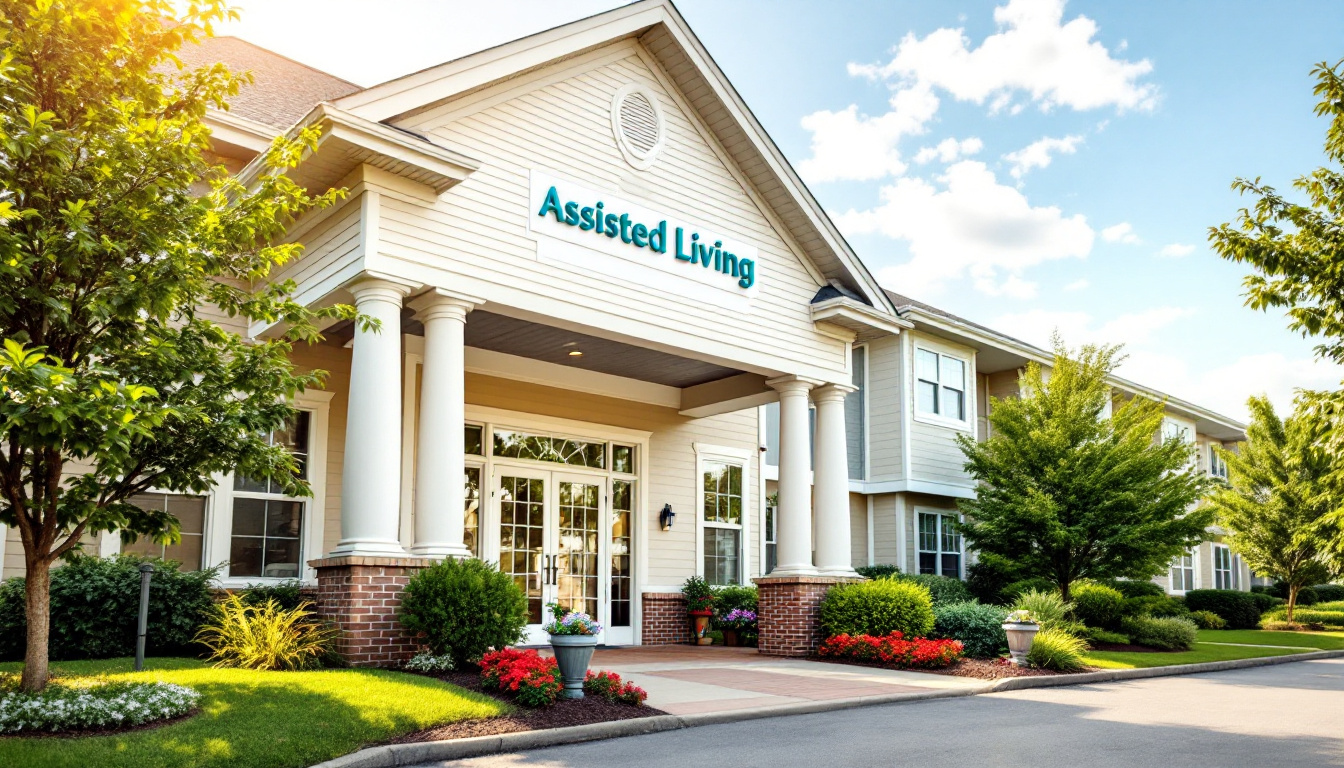The Benefits of Hospice Care for Patients and Families
Providing Compassionate End-of-Life Support

Understanding Hospice Care and Its Impact
Hospice care is a specialized form of treatment focused on improving quality of life for patients with terminal illnesses and supporting their families through the final stages of life. Emphasizing comfort, dignity, and emotional well-being, hospice services are designed to meet physical, psychological, and spiritual needs, providing a holistic approach that helps individuals live fully until their last days.
Holistic and Patient-Centered Services in Hospice Care

What are the benefits of hospice care for patients and families?
Hospice care offers a multitude of benefits by centering on improving quality of life, comfort, and dignity during the end-of-life phase. It provides a comprehensive, interdisciplinary support system that addresses physical pain, emotional well-being, and spiritual needs. This approach helps patients experience less suffering and more peace, with personalized care tailored to their desires.
Families also gain significant support through guidance, emotional counseling, and education, enabling them to navigate caregiving challenges more effectively. Bereavement and grief support are integral parts of hospice services, assisting families after the loss of loved ones. Most services are available 24/7, often provided at home, which minimizes unnecessary hospital stays and medical expenses. By emphasizing patient wishes and holistic care, hospice helps people live their remaining days with dignity, surrounded by loved ones, with reduced stress and emotional burden.
How does hospice care improve the quality of life for patients at the end of life?
Hospice care enhances the end-of-life experience by prioritizing symptom and pain management. This focus ensures that patients remain comfortable, alert, and free from suffering caused by distressing symptoms such as breathlessness, nausea, or depression.
Early initiation of hospice allows for better symptom control and emotional support, creating a calm and supportive environment, often at the patient’s own home. Patients benefit from personalized care plans that respect their wishes regarding care settings and types of support. Studies indicate that hospice can even extend life expectancy; research shows an average increase of nearly three months. Overall, hospice promotes a peaceful, supportive, and respectful environment vital for maintaining dignity and quality of life.
What types of support services are provided by hospice care?
Hospice care offers a broad spectrum of services designed to meet physical, emotional, spiritual, and social needs. These include effective pain management, symptom control, and provision of medications, equipment, and supplies at no extra cost.
Emotional and spiritual support is delivered through chaplains, social workers, counselors, and volunteers, helping patients find peace and meaning. Support also extends to family caregivers through education, respite care, and counseling, enabling them to manage caregiving responsibilities without burnout. In any setting, whether at home, in nursing facilities, or inpatient units, hospice dedicates resources to ensure a compassionate, holistic approach.
Is hospice care accessible at home, and how does it support home-based end-of-life care?
Yes, the majority of hospice care is designed to be provided at home, which over 90% of eligible patients prefer. Home-based hospice services include medical management of symptoms, emotional and spiritual support, and practical assistance tailored to individual needs.
Hospitals or hospice agencies prepare the home environment to ensure safety, comfort, and accessibility. Insurance coverage through Medicare, Medicaid, VA, and private insurers typically supports home hospice services. Providers deliver care through regular visits, medication management, and caregiver guidance, enabling patients to stay in the comfort of their familiar surroundings. Expanding eligibility criteria and early access could further improve comfort and quality of life for more patients choosing end-of-life care at home.
What is involved in hospice care services, including eligibility and costs?
Hospice services are comprehensive and tailored for individuals with terminal illnesses expected to live six months or less. Eligibility requires certification from a physician confirming the prognosis, along with the patient’s decision to prioritize comfort over curative treatments.
Services are provided in settings chosen by the patient, including homes, nursing facilities, or inpatient hospices. The multidisciplinary team—comprising doctors, nurses, social workers, chaplains, volunteers, and therapists—delivers personalized care to manage pain, provide emotional support, and attend to spiritual needs.
Medicare, Medicaid, and private insurances typically cover most expenses, often with minimal or no out-of-pocket costs. The services include pain relief medications, symptom control, psychosocial counseling, spiritual support, and assistance for caregivers. The goal is to ensure comfort and dignity during the final months of life.
How does hospice support families during grief and end-of-life planning?
Hospice extends significant support to families through emotional, spiritual, and practical means. The hospice team advises families on caregiving tasks, medical decisions, and managing symptoms, fostering a sense of partnership.
Supportive services include counseling, support groups, and chaplain visits, which help families process grief and prepare emotionally for loss. Educational resources aid in understanding disease progression, care needs, and funeral planning. After the loved one’s death, bereavement services, including counseling and peer support groups, continue up to 13 months, helping families navigate grief and find healing.
What are the advantages of hospice care in respecting patient preferences and enhancing comfort?
Hospice care is deeply rooted in respecting individual preferences, enabling patients to choose their preferred environment, whether at home or in specialized facilities. Care plans are personalized, aligning with personal goals, cultural values, and spiritual beliefs.
Pain and symptom management are central, ensuring patients remain comfortable and pain-free. Support services extend to emotional and spiritual domains, fostering a sense of peace. The holistic approach reduces unnecessary hospitalizations and invasive procedures, emphasizing dignified, peaceful dying. This person-centered focus helps patients retain control over their final days, leading to a sense of fulfillment, peace, and closure.
What should families know about hospice care that they might not be initially aware of?
Families should understand that hospice is not giving up but shifting focus from cure to comfort, dignity, and quality of life. It is accessible in multiple settings and can start early to maximize benefits.
Hospice offers a multidimensional support network that includes medical care, counseling, spiritual guidance, and bereavement services. The interdisciplinary team ensures comprehensive care tailored to each individual’s needs.
They should also be aware that hospice costs are generally covered by Medicare, Medicaid, or private insurance, reducing financial burdens. Choosing reputable providers and understanding the level of care available can significantly improve the end-of-life experience.
How long does Medicare cover hospice care, and what are the criteria for continued coverage?
Medicare covers hospice as long as patients continue to meet the eligibility criteria, including a certification from a doctor stating that the patient’s prognosis is six months or less, and the patient chooses to forgo curative treatments.
Coverage begins with two initial 90-day periods, followed by unlimited 60-day recertification periods if the patient still qualifies. Each recertification requires ongoing assessment, often involving a face-to-face encounter with a healthcare provider.
Patients can switch providers once within each period if needed. While coverage is continuous as long as the criteria are met, patients may be discharged if their condition stabilizes or no longer qualifies, which can temporarily interrupt coverage. Regular review ensures ongoing appropriateness of hospice care.
Supporting Families and Cultural Sensitivity in Hospice Care

How does hospice support families during grief and end-of-life planning?
Hospice offers vital emotional, spiritual, and practical support to families during their loved one’s end-of-life journey. The interdisciplinary team provides education about caregiving tasks, symptom management, and decision-making, helping families feel empowered and informed. Ongoing support includes respite care, which gives caregivers a necessary break to recharge physically and emotionally.
Hospice professionals facilitate open discussions about fears, wishes, and preferences, creating an environment of trust and compassion. They also assist with safety assessments and provide access to grief counseling and chaplain services, helping families cope with complex emotions. After a loved one’s passing, hospice continues to support families through bereavement programs, support groups, and community resources, easing their grief and fostering healing.
What are the advantages of hospice care in respecting patient preferences and enhancing comfort?
Hospice care centers on patient autonomy by creating personalized care plans that reflect individual goals, values, and cultural or spiritual preferences. This approach ensures that treatment options align with what matters most to the patient, fostering dignity and respect.
Enhanced comfort is achieved through meticulous symptom management, pain relief, and addressing emotional, social, and spiritual needs. Patients can choose their preferred setting—whether at home, a nursing facility, or dedicated hospice inpatient units—which promotes familiarity and peace.
Support for families and caregivers is also integral, providing emotional and spiritual guidance, along with practical assistance. These services help families find closure and peace of mind, creating a supportive environment where patients can live their final months comfortably and with dignity.
What should families know about hospice care that they might not be initially aware of?
Families may initially think hospice is solely about dying, but in reality, it’s a comprehensive, patient-centered service focused on comfort, dignity, and quality of life. Hospice can be provided in various settings, including at home, nursing homes, or inpatient facilities, making it accessible and convenient.
It’s important to understand that hospice supports both the patient and their family—offering emotional, spiritual, and practical help, including guidance on end-of-life decisions.
Coverage varies depending on insurance but is generally comprehensive, often including medication, supplies, and professional services. Families should select reputable hospice providers and clarify what services are included and what might incur additional costs, ensuring transparency.
How does hospice enhance the emotional and spiritual well-being of families and patients?
Hospice fosters emotional resilience and spiritual peace by providing dedicated counseling and support services. Chaplains and counselors respect diverse religious and spiritual beliefs, helping patients and families find meaning, acceptance, and hope during difficult times.
Support groups and individual counseling avenues are available to help manage fears, grief, and emotional upheaval. Organized grief support, including follow-up programs for surviving family members, helps them process their loss healthily.
This comprehensive support promotes healing, helps build resilience, and offers a sense of connection and comfort that sustains families through their journey.
What are the cultural considerations in hospice care, and how do providers ensure respectful and personalized support?
Hospice providers recognize that cultural, religious, and personal beliefs significantly influence end-of-life preferences. To ensure respectful care, staff are trained in cultural competence and include culturally diverse chaplains and specialists.
Services are tailored to honor individual traditions, rituals, and language preferences. Care plans involve families in shared decision-making, respecting their customs and ensuring their values guide care delivery.
Efforts include facilitating religious rites, providing language translation services, and understanding family dynamics that may vary across cultures. This personalized approach fosters trust, dignity, and meaningful experiences, ensuring hospice care is inclusive and respectful of diverse backgrounds.
| Aspect | Specifics | Importance |
|---|---|---|
| Cultural Sensitivity Training | Staff trained in cultural competence | Ensures respectful, inclusive care |
| Religious & Ritual Support | Respect for faith practices and rituals | Promotes spiritual comfort |
| Language Services | Translation and interpretation | Improves communication |
| Family Engagement | Shared decision-making respecting cultural norms | Builds trust & personalization |
| Inclusion of Spiritual Leaders | Chaplains from diverse backgrounds | Supports spiritual needs |
Overall, these practices enable hospice to serve a broad demographic, honoring individual dignity and cultural identity during end-of-life care.
The Interdisciplinary Team and Continuous Support in Hospice Care

What are the benefits of hospice care for patients and families?
Hospice care provides significant advantages to both patients and their families by emphasizing comfort, dignity, and quality of life during the end stage of illness. It offers a comprehensive, team-based approach that addresses not only physical pain but also emotional, social, and spiritual needs.
Patients benefit from personalized symptom management and emotional support, enabling them to live as fully and comfortably as possible. Families receive essential assistance, including education about the illness and caregiving, emotional support, and grief counseling after the patient’s passing. Hospice care often takes place in familiar environments like homes, which many patients prefer, reducing unnecessary hospital stays and medical expenses.
Furthermore, hospice services are available around the clock, providing immediate support whenever needed. This continuous care model alleviates anxiety for families and sustains patient dignity. Overall, this approach ensures that the focus remains on what truly matters—supporting patients in living meaningful days with loved ones and honoring their wishes.
How does the multidisciplinary team work to support patients and families?
The backbone of hospice care is an interdisciplinary team committed to holistic support. This team typically includes physicians, nurses, social workers, chaplains, volunteers, and aides, each playing a vital role.
Physicians and nurses focus on symptom control, medication management, and adjusting care plans as the patient’s condition evolves. Social workers provide emotional counseling, assist with practical concerns such as advance directives, and facilitate family support. Chaplains offer spiritual guidance tailored to individual beliefs, helping patients find peace and meaning.
Volunteers provide companionship and emotional relief, sometimes engaging in conversations or simple presence to comfort the patient. Home health aides assist with daily activities and personal care, maintaining the patient’s dignity.
The team works collaboratively, with frequent communication to coordinate care and incorporate family preferences. This integrated approach leads to higher patient satisfaction, better symptom management, and emotional comfort, fostering a sense of security and respect for the patient's personal goals.
What is the significance of 24/7 support and care flexibility in hospice services?
Providing continuous 24/7 support is crucial in maintaining patient comfort and relieving family anxiety. Round-the-clock availability ensures that help is accessible whenever symptoms intensify or emotional needs arise, leading to prompt symptom relief and peace of mind.
This constant support allows the hospice team to respond quickly with appropriate interventions, reducing unnecessary hospital visits, emergency care, or invasive procedures that may not align with the patient’s desires. Flexibility in care levels—switching between home care, respite, or inpatient services—enables tailored responses to changing health conditions.
Such adaptability ensures that patients receive the appropriate level of care, whether it involves managing sudden symptom escalation or providing a peaceful inpatient setting for complex needs. Overall, continuous, flexible support sustains dignity, comfort, and security during life’s final chapter, offering reassurance that professional help is always available whenever needed.
Ensuring Respect and Comfort at the End of Life
Hospice care plays a vital role in enriching the final chapter of a patient's life by emphasizing comfort, dignity, and individual preferences. Through a comprehensive, interdisciplinary approach, it supports not only the physical needs of patients but also their emotional and spiritual well-being. Families benefit from guidance, education, and bereavement services, making the transition smoother and more meaningful. Accessible in various settings—most notably at home—hospice's flexibility and holistic focus help create a peaceful, respectful environment where patients can live their remaining months with dignity, surrounded by loved ones. As the healthcare landscape continues to evolve, hospice remains a compassionate choice for ensuring quality of life and honoring personal wishes during life's most delicate moments.
References
- Hospice Benefits - StatPearls - NCBI Bookshelf
- Advantages and Disadvantages of Hospice Care - Verywell Health
- Benefits of Hospice - Hospice of the Red River Valley
- 9 Benefits of Hospice Care for Patients and Families - Amedisys
- Benefits of Hospice at Home: Help For You and Your Family - 3HC
- For Patients & Families - Hospice Foundation of America
- Counting Down the Top 30 Benefits of Hospice Care
- Hospice Care Coverage - Medicare
- What Is Hospice Care? - Cleveland Clinic
- Hospice Care - StatPearls - NCBI Bookshelf





































































































